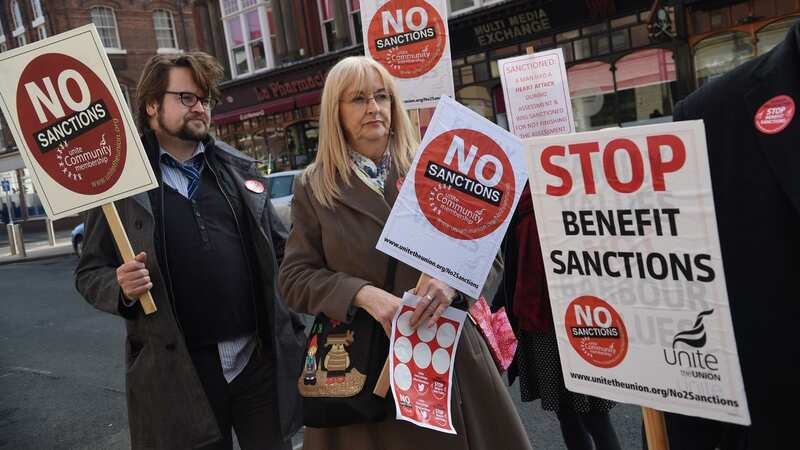

Universal Credit sanctions have become harsher over the last few years with the Department for Work and Pensions (DWP) issuing a warning for possible future sanctions for certain groups of benefit claimants.
Last month, Minister of State for Disabled People, Health and Work Mims Davies confirmed that those claiming Universal Credit with limited capability for work (LCW) could potentially face sanctions going forward. Currently, those in this group are not obliged to obliged to apply for jobs. Those who are designated to be fit for work (FFW) are subject to sanctions if they fail to look for work.
In a response to a question from Labour MP for Slough Tanmanjeet Singh Dhesi, Ms Davies said individuals with LCW must prepare for future employment and could face sanctions if they fail to meet DWP requirements.
She said: "Under Universal Credit and Employment and Support Allowance, sanctions do not apply to all customers. Those with a health condition, illness or disability who are found to have limited capability for work and work-related requirements are not subject to work-related conditions and will therefore not be sanctioned.
"Those found to have limited capability for work, and claimants on work-related benefits, are expected to take responsibility for meeting the conditionality requirements they have agreed with their work coach. Where a customer has a health condition, illness or disability, work coaches have the discretion to tailor these requirements to what is reasonable and achievable, taking into account the individual's condition. Additionally, in some circumstances, a customer's work-related requirements may be lifted for a period if their ability to carry them out is disrupted due to their circumstances.
 8 money changes coming in February including Universal Credit and passport fees
8 money changes coming in February including Universal Credit and passport fees
"A sanction is only applied where an individual has failed to meet their agreed conditionality requirements without demonstrating good reason for doing so. In cases where vulnerabilities are known or suspected, a pre-referral quality check is undertaken prior to any sanction referral to ensure that it is appropriate in the circumstances."
Recent Department for Work and Pensions (DWP) data revealed that the average Universal Credit sanctions length or "duration" has risen from 38 days in 2019 to 45 days in 2023. According to the data, just under 6% of sanctions that ended in 2019 were longer than six months however this rose to 10% of sanctions that ended in 2023.
Benefit sanctions are penalties given to people for failing to meet the conditions of their benefit claim. If you get one, your payment will usually be reduced and there are different levels of sanctions which determine how long the sanctions last.
The four sanction levels are: Lowest, Low, Medium and Higher. The lowest level lasts for seven days whilst the highest can reach 182 if you're a repeat offender. The amount of Universal Credit you will lose for your sanction will depend on how you get each month, although it can be cut by 100% in some instances.
On sanctions, a DWP spokesperson said: “People are only ever sanctioned if they fail to meet the conditions they agree to without good reason and almost 95% of sanctions in the last quarter were due to claimants not attending a mandatory work-focused interview. These types of sanctions can be quickly concluded by the claimant attending a replacement interview.
“Our sanctions are designed to help people on their journey into work and almost three-quarters of claimants agree that the potential for sanctions meant they were more likely to engage with their work search. Safeguards are in place when claimants demonstrate they cannot meet their essential needs as a result of a sanction, and we continue to help the most vulnerable with £3,700 per household in cost-of-living support.”